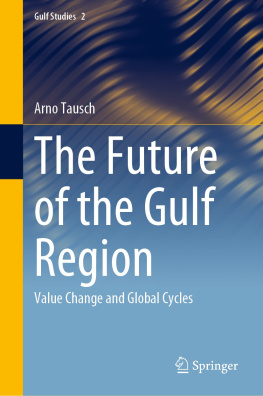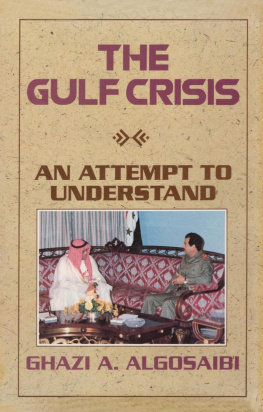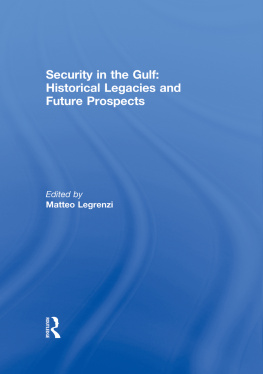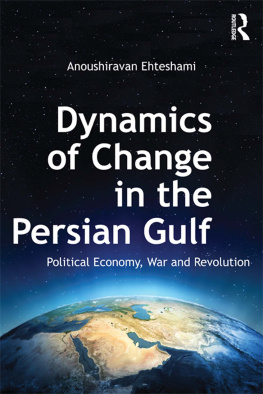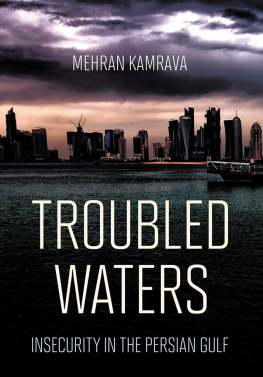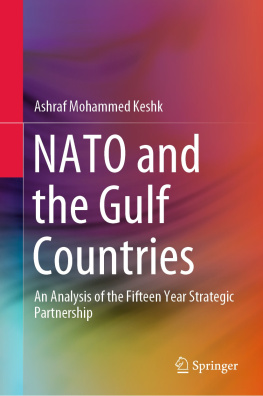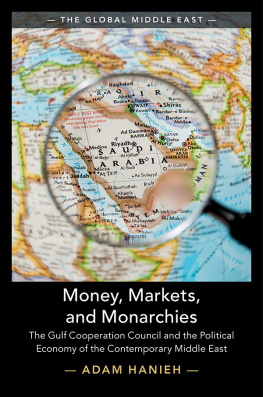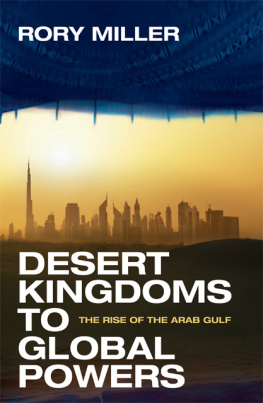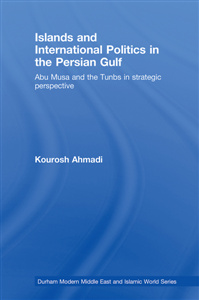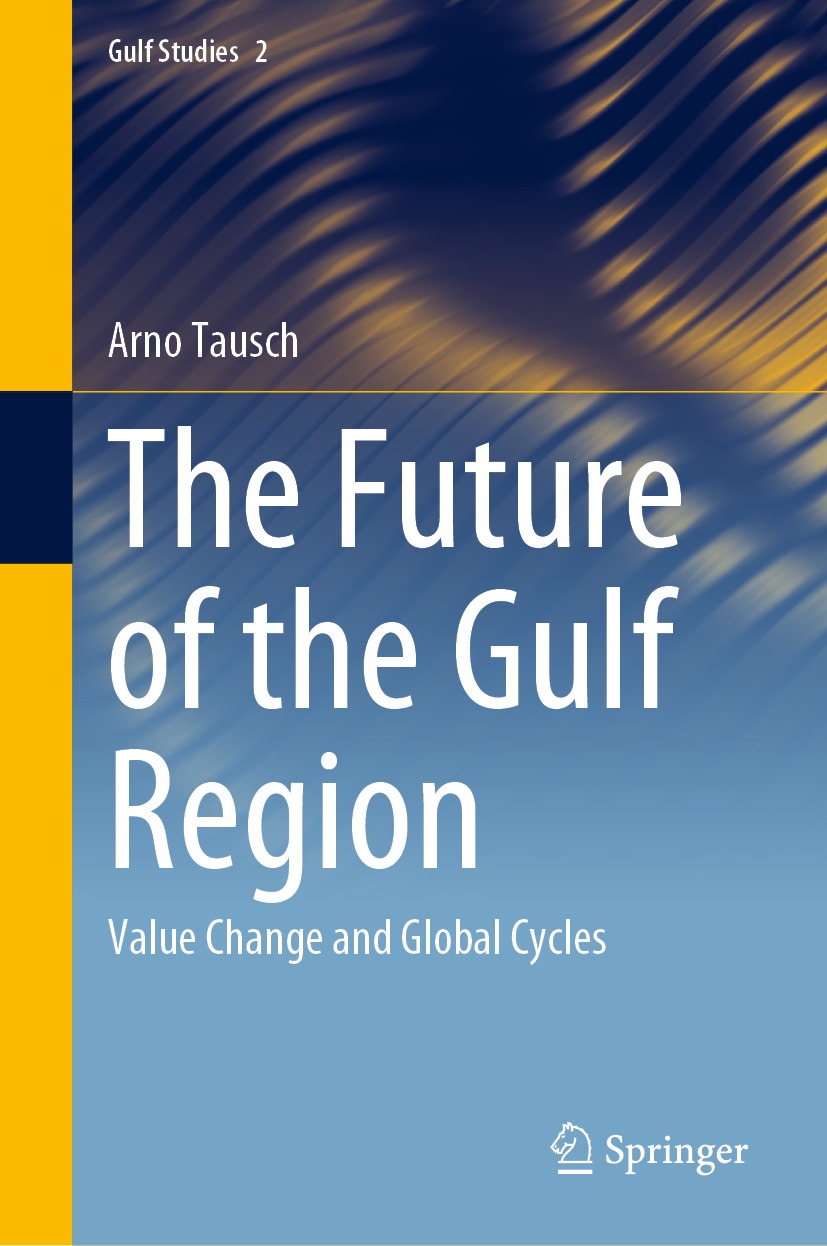Volume 2
Gulf Studies
Series Editor
Md Mizanur Rahman
Gulf Studies Center, College of Arts and Sciences, Qatar University, Doha, Qatar
This series is dedicated to serving growing academic interests in the dynamic, complex and strategically important Gulf region, offering a publication platform to scholars in the region and globally. The series takes an interdisciplinary approach to documenting the changes taking place in the Gulf societies, and examines the evolving relationship between the Gulf and other regions. The series advances nonWestern perspectives in studying the Gulf societies, and their interactions with the rest of the world. The series includes work being done on the member states of the Gulf Cooperation Council (GCC), namely: Saudi Arabia, Oman, the United Arab Emirates, Qatar, Bahrain and Kuwait, in addition to Iran, Iraq, and Yemen.
The series accepts proposals for monographs, edited volumes and handbooks that provide an understanding of the Gulf societies contemporary social, economic, and political landscapes. The series covers a wide range of topics within four broad themes, as follows:
Social and Cultural Issues in the Gulf:
Demography, migration, citizenship, gender, culture and identity, urbanization, education, new media, unemployment, youth, family, women empowerment, leadership, aging, human rights, sports, Islamic ethics, and Islam and society
Politics and Security in the Gulf:
Gulf defence and security, the GCC integration, democracy and political reform, Gulf politics and political systems, the GCCs foreign policy
Energy and Economics in the Gulf:
The political economy of the Gulf, economic diversification, international investments, international trade, knowledge economy, energy security and geopolitics of energy, renewable energy development, environmental regulations, infrastructure and urban planning, Islamic finance
The GCC and the World:
The GCC and Iran, the GCC and Africa, the GCC and South Asia, the GCC and East Asia, the GCC and Southeast Asia, and the GCC and Western Powers
More information about this series at https://www.springer.com/series/16417
Arno Tausch
The Future of the Gulf Region
Value Change and Global Cycles
1st ed. 2021

Logo of the publisher
Arno Tausch
Department of Political Science, University of Innsbruck, Innsbruck, Austria
ISSN 2662-4494 e-ISSN 2662-4508
Gulf Studies
ISBN 978-3-030-78298-6 e-ISBN 978-3-030-78299-3
https://doi.org/10.1007/978-3-030-78299-3
The Editor(s) (if applicable) and The Author(s), under exclusive license to Springer Nature Switzerland AG 2021
This work is subject to copyright. All rights are solely and exclusively licensed by the Publisher, whether the whole or part of the material is concerned, specifically the rights of translation, reprinting, reuse of illustrations, recitation, broadcasting, reproduction on microfilms or in any other physical way, and transmission or information storage and retrieval, electronic adaptation, computer software, or by similar or dissimilar methodology now known or hereafter developed.
The use of general descriptive names, registered names, trademarks, service marks, etc. in this publication does not imply, even in the absence of a specific statement, that such names are exempt from the relevant protective laws and regulations and therefore free for general use.
The publisher, the authors and the editors are safe to assume that the advice and information in this book are believed to be true and accurate at the date of publication. Neither the publisher nor the authors or the editors give a warranty, expressed or implied, with respect to the material contained herein or for any errors or omissions that may have been made. The publisher remains neutral with regard to jurisdictional claims in published maps and institutional affiliations.
This Springer imprint is published by the registered company Springer Nature Switzerland AG
The registered company address is: Gewerbestrasse 11, 6330 Cham, Switzerland
For my beloved wife Krystyna
Preface
It was with great pleasure that the present author received an invitation to submit a work for the new Springer series Gulf Studies, edited by Prof. Mizanur Rahman from Qatar University.
As the research project evolved, the countries of the Gulf received an increased international attention by the peace accords between the State of Israel, and Bahrain and the United Arab Emirates, with other Arab nations following. These Abraham Accords could be a path for the world: the respectful coexistence and working together of the major world civilizations. As an author who contributed for many years to debates about liberal and democratic Muslim societies, and Peace, Salam, Shalom between the major world religions, and who also actively published in the State of Israel for major think tanks of that country, this is a very welcome development, adding yet another motive to proceed with the present book.
At this junction of world history and amidst the unprecedented current economic and social crisis in the wake of the COVID-19 pandemic (World Bank, 2021), the Gulf countries could in future play a major role in the institutions of global governance like the United Nations, the G-20 and, hopefully also one day, the OECD, to stabilize and safeguard the Constitution of Liberty (Hayek) on a global scale and to work for the tolerance of the global civilizations.
Especially to my audiences in the Gulf another note might be permitted right at the start: this book was written in the tradition of political science as a rigorous quantitative discipline, committed to the idea of testing theories with empirical data and advanced statistical methodologies, initiated by Karl Wolfgang Deutsch (19121992) (Taylor & Russett, 2020). Such a political science tradition is especially fruitful for the future of the expanding discipline in the Gulf region: the testing of theories and hypotheses with highly developed statistical methodologies and data, independent from ones own ideological, religious, or whatsoever background. It is all to logical that the present author, given his earlier research (Solomon & Tausch, 2020, 2021; Tausch & Moaddel, 2009; Tausch, Heshmati, & Karoui 2014; Tausch, & Heshmati, 2013; Tausch, & Prager, 1993), again follows these traditions here. In presenting this book, the author also gratefully acknowledges the political science perspective of the European scholars Volker Bornschier, Hartmut Elsenhans, Wilfried Rhrich, and Dieter Senghaas (Bornschier, 1996, 2005, 2016; Bornschier & Chase-Dunn, 1985; Elsenhans, 1983, 1991, 1996, 2011, 2014, 2016, 2021; Elsenhans & Babones, 2020; Rhrich, 1978, 1978, 2004, 2015; Senghaas, 1985, 1988, 2013). For all of them, political science is a discipline informed by theory and empirical data, and they share with Deutsch, 1968 also the perspective of unequal relationships in world society between the centers and the peripheries. With all of them, the author could develop a fruitful exchange of ideas over decades at crucial junctions of his academic life. Their work and support were a continuing inspiration for the present author ever since the days when he defended his doctoral thesis at Salzburg University, 1976 and his

